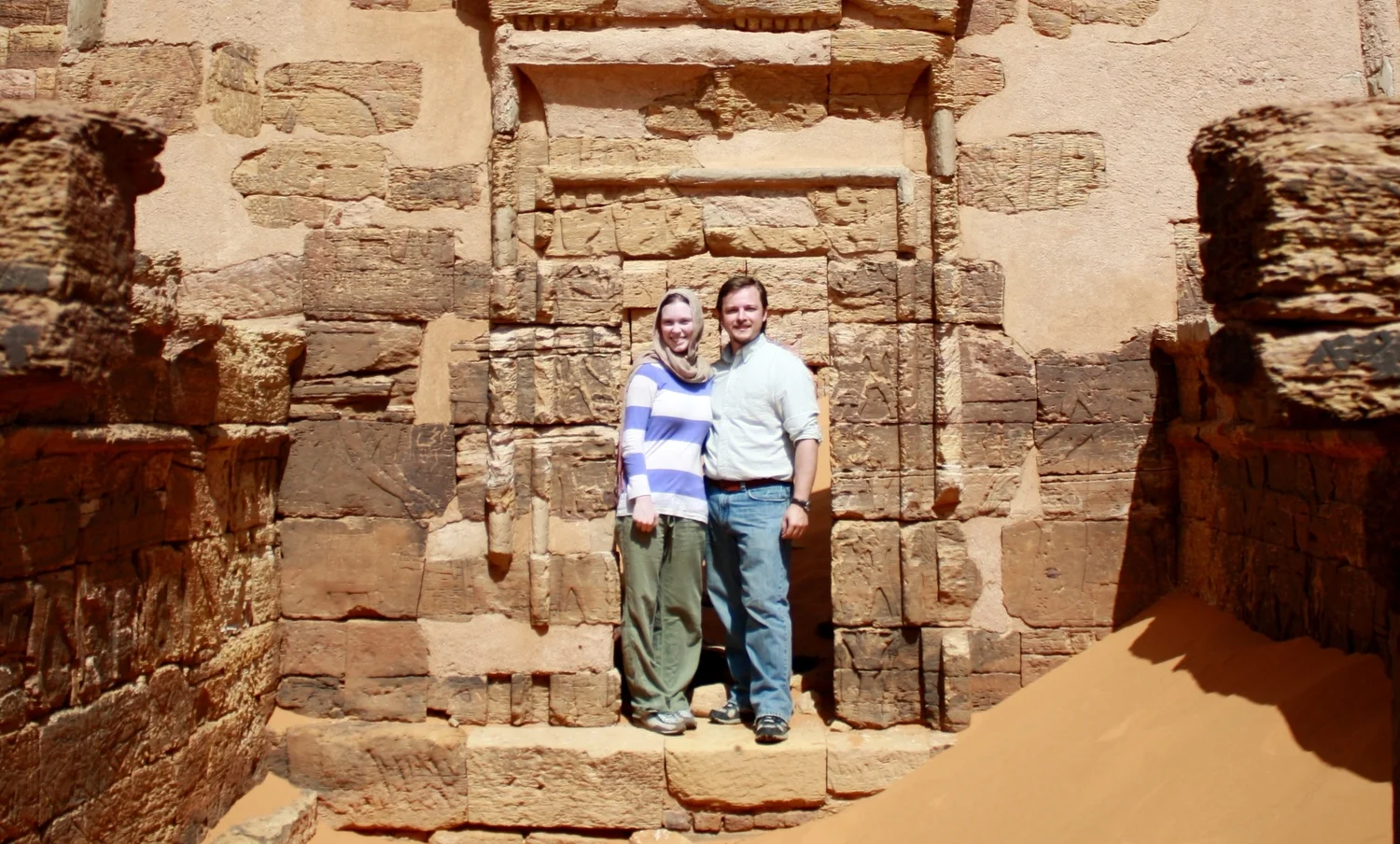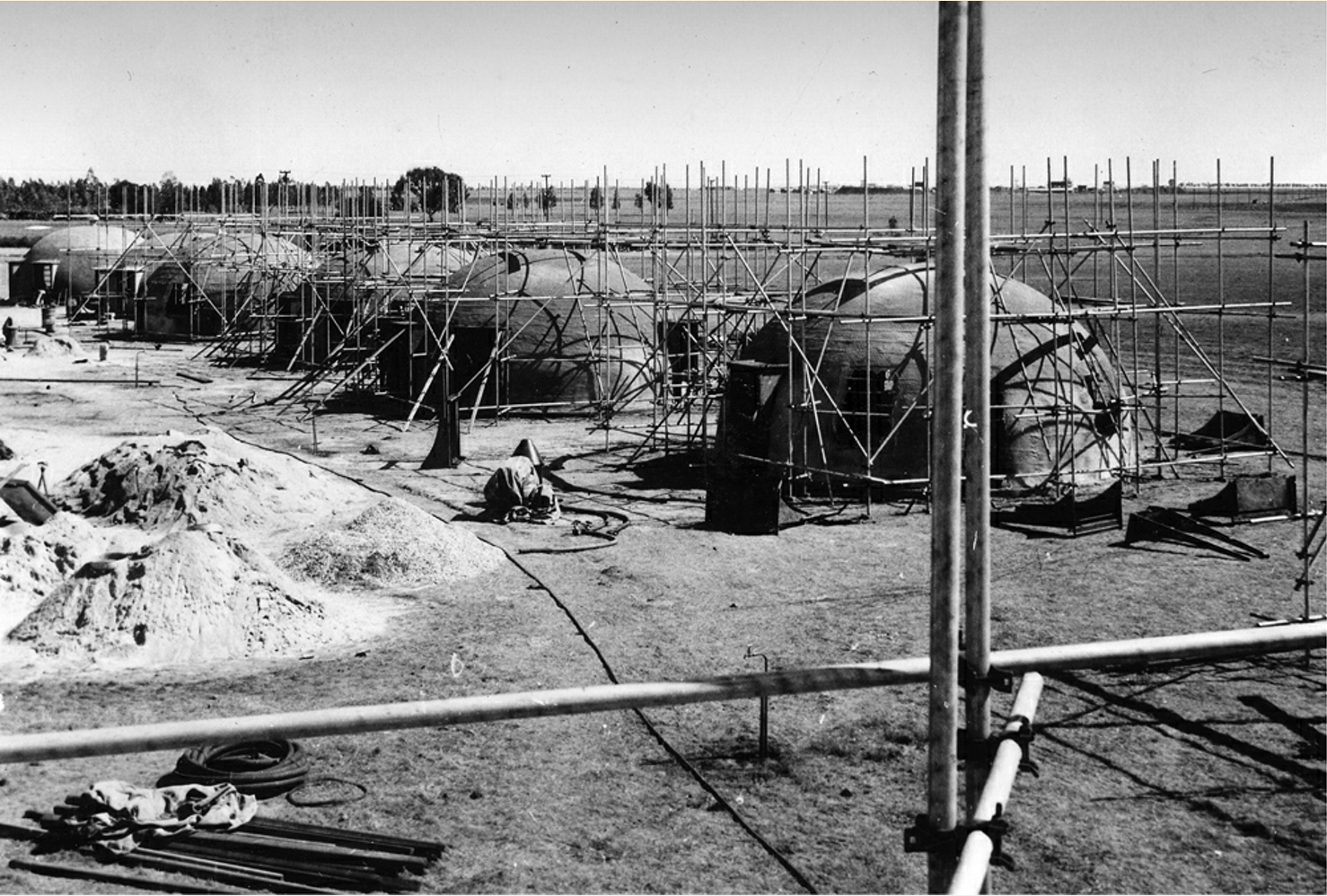Sitting one day beneath a light blue sky, dimmed with desert sand looking more like faded old denim jeans, I found myself reading a book by Italo Calvino. In that book he writes:
“A person's life consists of a collection of events, the last of which could also change the meaning of the whole, not because it counts more than the previous ones but because once they are included in a life, events are arranged in an order that is not chronological but, rather, corresponds to an inner architecture.”
I sat the book down on my chest and breathed in the air, the sand, the thought. For eleven years, since the plane set down on the East end of the continent in 2010, we’ve been breathing the same Saharan sand. What beachside castles could be built in our lungs, an inner architecture of events. The waters of the Nile and Senegal rivers flow in our veins. The Indian and Atlantic comprise our horizon. The men, women and children across Africa people our dreams.
His words struck home in my heart. The collection of events in our lives are not chronological. That may be how we experience them, one after another, but the weight of each, the shape of each, determines its place. We all have memories we put on display. We build archways in our inner architecture, inviting others to celebrate them with us. Others, we try to hide in the basement behind old boxes and unfulfilled aspirations, callings for which we could never time. The irony is that those life events we try hardest to bury become fused with our inner foundations, cracking the image of God in our lives, while God’s callings for us float waiting to be invited back up to the living room.
For Elise and I, the events of these days will appear to “change the meaning of the whole,” not as Calvino says, “because it counts more…but because they are included in a life.” We have made the difficult but obedient decision to leave Africa.
Leaving Africa
Leaving Africa has been one of the hardest things in our lives. This great and beautiful continent that mothered me, raised me in her rain forest heart, trained me high above her rift valley, tried me in the desert sands, tested me on her coasts. More than all that, she has peopled our lives with the most incredible men, women and children. She has been the Lord’s house for us, placing us in family.
The Lord has been generous to us, not rushing us through this decision, but drawing us toward a new season over the past three years. Even as we were preparing to return to Dakar after a year of itinerate speaking in the United States He knew I wasn’t ready to make the move. The Spirit of God was kind, gentle and loving, moving step by step and day by day toward His purpose.
What a privilege it has been to have the support of men and women in our organization like John and Cheryl Easter, Mike and Linda McLaflin, Bryan and Laura Davis who saw their leadership as a mantle to steward others well. What an honor to stand with brothers and sisters like Jeremy and Jenilee Goodwin, Owen and Alison Pinckney, Chris and Heidi Ness, and countless others left unnamed for their protection.
What a humbling gift to serve along the national churches of East, Central and West Africa that have created space for us; to love the people of the underground church; to place our shoulders alongside Pastors Jean Noel and Khady, Benoit and Sophie, Jeremie and Elisabeth; to walk with future generations of servant leaders at the Bible schools in Senegal, Equatorial Guinea and the Gambia. All too immense a gift for one family!
A Door with a Beat
At our home in Dakar we built an small office a couple years ago, an intentional space to serve. As a symbol I had the door made of the wood from which djembe drums are made. That door had a beat, the knocks had a rhythm, a purpose. Every person who walked through was stepped into a song, a hymn of praise, a place of peace. I stood in that doorway a few weeks ago for the last time, blessed by the years that the door made by Sudanese teak invited people in to meet with Jesus, to grow in relationship with His people, to be loved in His kingdom.
Now, our life, our calling, lay on the other side of that door.
A Consecrated Time of Change
I have always been inspired by the life of Dietrich Bonhoeffer, the German theologian who left comfort for purpose. While he was in Harlem, loving the men and women of the growing black church, his heart ached with the destruction taking place in Germany. He left the thing he loved for the purpose God was calling him toward.
For Elise and I we have watched the United States from the other side of the world, faithfully asking, “Lord, is now our Bonhoeffer moment?” Is it time for us to put our shoulders against the weight pressing against the American church. Over the years he has continued to keep us rooted in Africa, but 3 years ago we felt the air beginning to shift. We returned to Senegal for our third term of service unsure what was taking place.
In November of 2020 we sat down with our West Africa leadership and shared what we felt the Lord was saying and before the meeting was over Elise and I knew the time was now. In February, we spoke with them again and shared our final decision. From that point until a few weeks ago we walked the difficult path of saying goodbye. As of August 2021 we have brought the past 11.5 years of service with Assemblies of God World Missions to a close, as we step into this new season.
We are currently in the process of moving toward Richmond, Virginia to serve a multiethnic, multigenerational congregation with the challenging words of Bart Rendel and Doug Parks “to reimagine, reboot and reignite a movement of disciple making in our corner of God’s kingdom.”
Our vision is still to be a personal link from the local church to the unreached; to see the marginalized and disenfranchised who get easily lost in our fragmented society. Our mission is still to create a space to grow a movement; to steward the gifts and abilities the Lord has blessed us with for the good of others and His glory.
The Inner Architecture of Kingdom
Elise and I want to thank you for your faithful support over these past years, allowing us to be your personal link from your local church to the unreached of Africa. Together we have amassed a treasure trove of life events, ones that we sit prominently displayed in the inner architecture we share.
And even more so, the great and glorious things that God has done in and through our united obedience will be celebrated before the Lord in the inner architecture of His Kingdom. Every lost person found. Every new believer baptized. Every Christ-centered marriage consecrated. Every leader given a servants towel. All of those things mark our united service in Africa. And they will be the same defining events in our American days to come.





